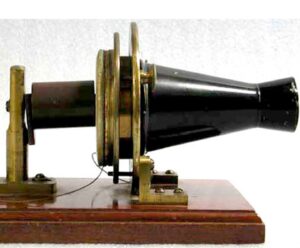Reproduction of mechanisms changes to technology has vastly affected all aspects of life from how we lived in the past to how today’s society lives; for example, when one needed to know information, it came by “word of mouth.”
Even telling time of day was done by looking at your shadow and measuring how far it falls behind the body while the sun is up.
The evolution of mechanisms has reshaped the world significantly as technology changes how society lives, learns, works, and travels.
Now one can sit and watch what is going on worldwide without moving; the digital world makes it possible.
Japan is known for the rapid advance in technology after the second world war; the advancement in electronic example vehicles, robotics, video games medical devices are some of the few developments in technology.
People develop talent and education to aid them in operating the impact of the changes.
Society can now use the digital system to do everything. The internet provides us with all the information ready at hand with just one click away.
For a computer, this device has come a long way from occupying a room because of its enormous size to the extent that it can be carried around with one hand and fit on one’s lap.
Society can always stay in touch with family, friends, and work no matter their location, and you can still communicate instantly. People can now explore these changes in the digital world, from a house phone to smartphones from computers to tablets.
Technology connectivity aids us to do many things anytime, anywhere. It helps us to do online and banking shopping. Digital technology makes it possible always to have ready access to information.
To compare changes of current technology and its uses by how it has been in the past. The digital system has vastly changed how we live today.
Below is a picture of the first computer and is the massive size in comparison to

A laptop that is much smaller in size and has more capabilities.

In the earliest time, before electromagnetic telephones came about, mechanical and acoustic devices were used for transmitting speech and music.
This device was based on sound transmission. The sound was transmitted by mechanical vibration.

Things and time moved quickly, the digital world exploded, and the telephone emerged to a successive improvement—the idea to communicate electronically with the invention of cell phones.

They have given credits for another successful vision with a mooted idea of mechanical reproduction.







